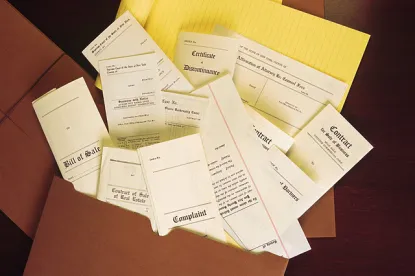On June 1, 2015, the United States Supreme Court issued its opinion in EEOC v. Abercrombie & Fitch Stores in which it held that a job applicant can experience religious discrimination under Title VII of the Civil Rights Act of 1964, without any evidence that the employer had actual knowledge of the applicant’s need for an accommodation. The Supreme Court held that the job applicant only has to show the applicant’s need for an accommodation was a motivating factor in regard to the employer’s decision. The applicant is not required to show the prospective employer had actual knowledge of the applicant’s need for an accommodation.
In this case, Samantha Elauf, who is Muslim, applied for a position with Abercrombie & Fitch (Abercrombie). During the interview, Ms. Elauf wore a hijab (a headscarf). Ms. Elauf never said she was Muslim or that she required any kind of exemption from Abercrombie’s dress policy, which prohibited wearing caps. The interviewer believed that Ms. Elauf was wearing the hijab because of her Muslim faith but did not ask Ms. Elauf about it. The interviewer found Ms. Elauf qualified to be hired as a sales associate; however, she was concerned the headscarf might violate Abercrombie’s dress policy. The interviewer then discussed the matter with the district manager and expressed opinion that Ms. Elauf wore the headscarf because of her faith. The district manager believed the headscarf violated Abercrombie’s dress policy in regard to caps and instructed the interviewer that Ms. Elauf was not to be hired.
The EEOC filed suit on behalf of Ms. Elauf against Abercrombie. The trial court ruled that Abercrombie had discriminated against Ms. Elauf because of her religion and awarded $20,000.00. The Tenth Circuit Court of Appeals reversed the trial court’s judgment and the case was then heard by the Supreme Court.
Upon a careful reading of the opinion, the Supreme Court’s holding in this case does not actually expand employers’ obligations under Title VII. Employers do, however, need to be careful in determining whether they are required to provide a religious accommodation to an applicant or employee. Generally, an employer should not inquire of a job applicant’s or employee’s religious beliefs, as such inquiries could form the basis for a religious discrimination claim. As is always a good practice, employers should provide all job applicants and employees with information related to work schedules, dress policies, essential function of their positions, and other necessary information. If following review of this information an applicant or employee requests a religious accommodation, it is recommended that employers speak with their employment counsel for guidance on how to respond. In addition, it is recommended that employers speak with their employment counsel whenever a job applicant or existing employee requests a religious accommodation or it appears to the employer that an applicant/employee might need a religious accommodation. Following a discussion with their employment counsel, a course of action can then be determined, hopefully eliciting sufficient information to determine whether a religious accommodation needs to be made, while at the same time not resulting in a religious discrimination claim. The firm’s employment law attorneys will be more than happy to discuss these issues with employers facing these circumstances.
Department of Labor Issues New FMLA Forms
The U.S. Department of Labor (DOL) recently revised its model Family and Medical Leave Act forms. A copy of the revised forms can be found on the DOL’s website. The most significant revision of the forms is to the Genetic Information Non-Discrimination Act of 2008 (GINA). GINA prohibits discrimination on the basis of genetic information with respect to health insurance and employment. It also significantly restricts the ability of employers to request genetic information about their employees and their family members. Employers, currently using the DOL’s model FMLA forms, should use the new revised versions.




 />i
/>i

